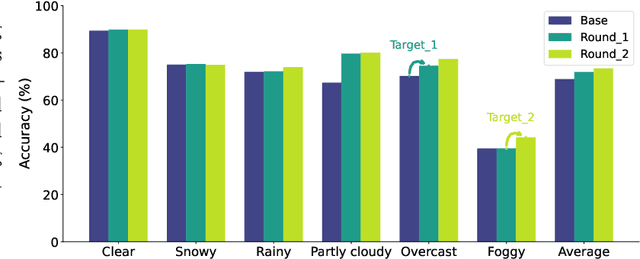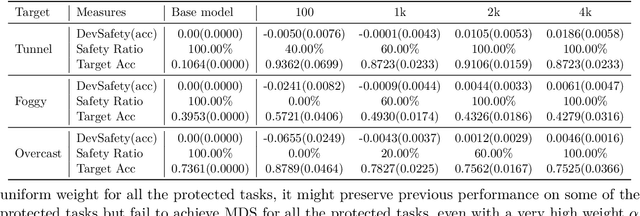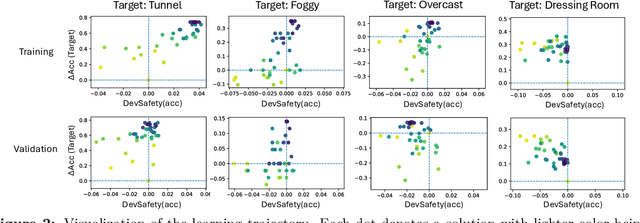Wendi Yu
Model Developmental Safety: A Safety-Centric Method and Applications in Vision-Language Models
Oct 13, 2024



Abstract:In the real world, a learning-enabled system usually undergoes multiple cycles of model development to enhance the system's ability to handle difficult or emerging tasks. This continual model development process raises a significant issue that the model development for acquiring new or improving existing capabilities may inadvertently lose capabilities of the old model, also known as catastrophic forgetting. Existing continual learning studies focus on mitigating catastrophic forgetting by trading off performance on previous tasks and new tasks to ensure good average performance. However, they are inadequate for many applications especially in safety-critical domains, as failure to strictly preserve the performance of the old model not only introduces safety risks and uncertainties but also imposes substantial expenses in the re-improving and re-validation of existing properties. To address this issue, we introduce model developmental safety as a guarantee of a learning system such that in the model development process the new model should strictly preserve the existing protected capabilities of the old model while improving its performance on target tasks. To ensure the model developmental safety, we present a safety-centric framework by formulating the model developmental safety as data-dependent constraints. Under this framework, we study how to develop a pretrained vision-language model (aka the CLIP model) for acquiring new capabilities or improving existing capabilities of image classification. We propose an efficient constrained optimization algorithm with theoretical guarantee and use its insights to finetune a CLIP model with task-dependent heads for promoting the model developmental safety. Our experiments on improving vision perception capabilities on autonomous driving and scene recognition datasets demonstrate the efficacy of the proposed approach.
Automated Polynomial Filter Learning for Graph Neural Networks
Jul 16, 2023Abstract:Polynomial graph filters have been widely used as guiding principles in the design of Graph Neural Networks (GNNs). Recently, the adaptive learning of the polynomial graph filters has demonstrated promising performance for modeling graph signals on both homophilic and heterophilic graphs, owning to their flexibility and expressiveness. In this work, we conduct a novel preliminary study to explore the potential and limitations of polynomial graph filter learning approaches, revealing a severe overfitting issue. To improve the effectiveness of polynomial graph filters, we propose Auto-Polynomial, a novel and general automated polynomial graph filter learning framework that efficiently learns better filters capable of adapting to various complex graph signals. Comprehensive experiments and ablation studies demonstrate significant and consistent performance improvements on both homophilic and heterophilic graphs across multiple learning settings considering various labeling ratios, which unleashes the potential of polynomial filter learning.
 Add to Chrome
Add to Chrome Add to Firefox
Add to Firefox Add to Edge
Add to Edge